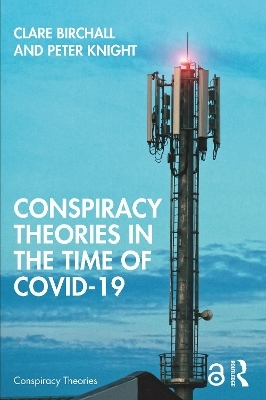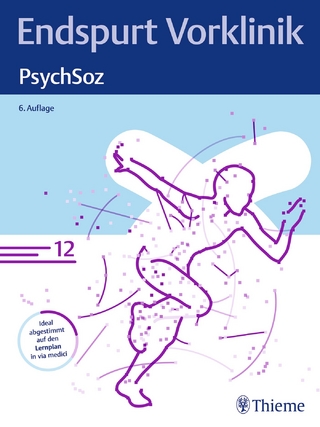
Conspiracy Theories in the Time of Covid-19
Routledge (Verlag)
978-1-032-32499-9 (ISBN)
The book combines digital methods analysis of large datasets assembled from social media with politically and culturally contextualised close readings informed by cultural studies. In contrast to other studies which often have an alarmist take on the "infodemic," it places Covid-19 conspiracy theories in a longer historical perspective. It also argues against the tendency to view conspiracy theories as merely evidence of a fringe or pathological way of thinking. Instead, the starting assumption is that conspiracy theories, including Covid-19 conspiracy theories, often reflect genuine and legitimate concerns, even if their factual claims are wide of the mark. The authors examine the nature and origins of the conspiracy theories that have emerged; the identity and rationale of those drawn to Covid-19 conspiracism; how these conspiracy theories fit within the wider political, economic and technological landscape of the online information environment; and proposed interventions from social media platforms and regulatory agencies.
This book will appeal to anyone interested in conspiracy theories, misinformation, culture wars, social media and contemporary society.
The Open Access version of this book, available at http://www.taylorfrancis.com, has been made available under a Creative Commons Attribution (CC-BY) 4.0 license.
Clare Birchall is Professor of Contemporary Culture at King’s College London, UK. She is the author of Knowledge Goes Pop: From Conspiracy Theory to Gossip, Shareveillance: The Dangers of Openly Sharing and Covertly Collecting Data, and Radical Secrecy: The Ends of Transparency in Datafied America. Peter Knight is Professor of American Studies at the University of Manchester, UK. He is the author of Conspiracy Culture, The Kennedy Assassination, and Reading the Market, and is co-author of Invested. He is the editor of Conspiracy Nation and Conspiracy Theories in American History, and the co-editor of The Routledge Handbook of Conspiracy Theories.
Introduction: Pandemic, Plandemic, Infodemic 1. Deep Background: The Contexts of Conspiracy Theory 2. Infodemic: Metaphor, Measurement and Moral Panic 3. A Year of Covid-19 Conspiracy Theories: Part 1 4. A Year of Covid-19 Conspiracy Theories: Part 2 5. Coalitions of Distrust: Features of Coronavirus Conspiracy Theories 6. Conspiracy Entrepreneurs and Marketplace Bots 7. Infrastructural Design and Disinfo Capitalism Conclusion: Confronting Conspiracism
| Erscheinungsdatum | 17.10.2022 |
|---|---|
| Reihe/Serie | Conspiracy Theories |
| Zusatzinfo | 6 Halftones, color; 2 Halftones, black and white; 6 Illustrations, color; 2 Illustrations, black and white |
| Verlagsort | London |
| Sprache | englisch |
| Maße | 156 x 234 mm |
| Gewicht | 426 g |
| Themenwelt | Geisteswissenschaften ► Geschichte |
| Studium ► 1. Studienabschnitt (Vorklinik) ► Med. Psychologie / Soziologie | |
| Studium ► Querschnittsbereiche ► Infektiologie / Immunologie | |
| Sozialwissenschaften ► Soziologie | |
| ISBN-10 | 1-032-32499-6 / 1032324996 |
| ISBN-13 | 978-1-032-32499-9 / 9781032324999 |
| Zustand | Neuware |
| Haben Sie eine Frage zum Produkt? |
aus dem Bereich


